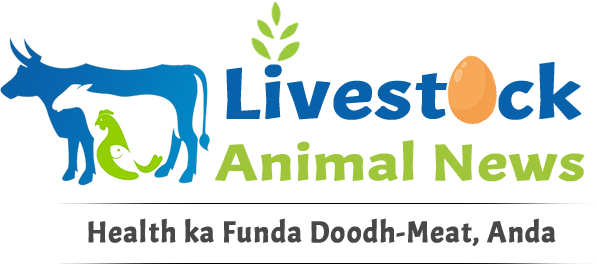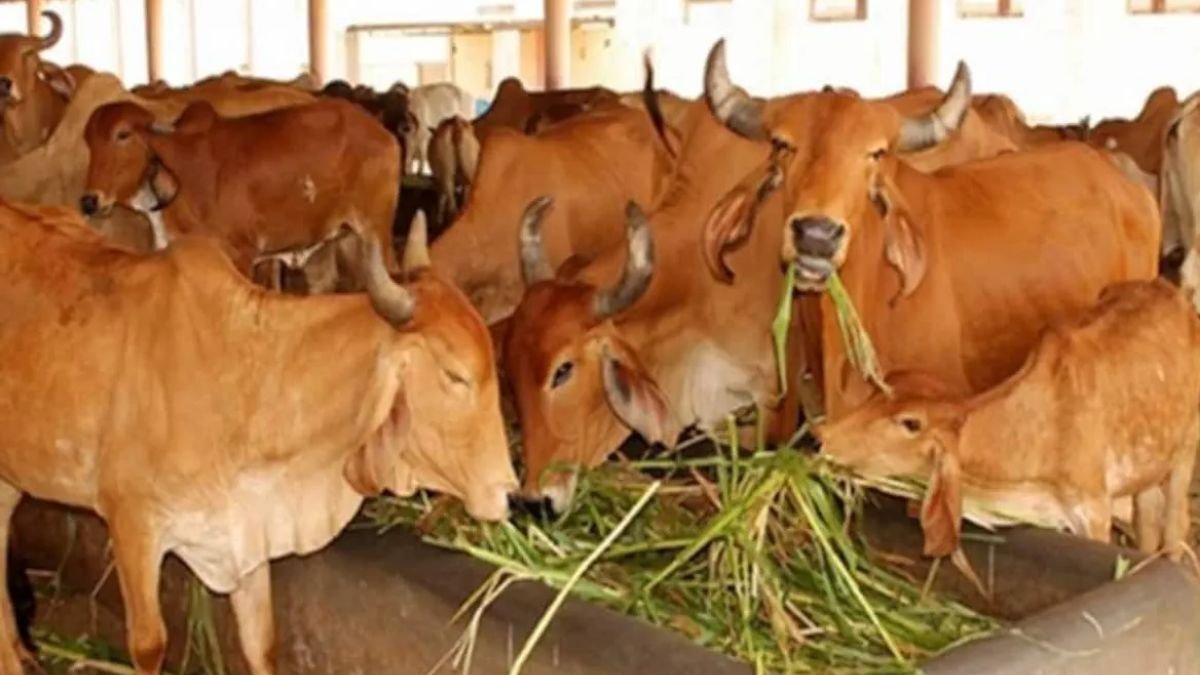New Delhi. The Department of Animal Husbandry and Dairying (DAHD) framed the National Livestock Policy in 2013 to address key challenges hindering the growth of the livestock sector. These challenges include shortage of feed and fodder, low productivity, livestock health, livestock and environment, knowledge gap, and inadequate infrastructure for marketing, processing and value addition. The policy aims to increase livestock productivity and production sustainably while improving farmers’ livelihoods. It also focuses on strengthening research and development initiatives to improve productivity, biosecurity and profitability in the sector. The policy promotes the conservation and genetic improvement of indigenous livestock and poultry breeds. It also aims to enhance feed and fodder availability to meet livestock nutrition requirements and achieve optimal productivity.
The National Livestock Mission (NLM) is being implemented since 2014-15 on the lines of the National Livestock Policy 2013 wherein the activities were undertaken for development of feed and fodder by providing financial assistance, conservation of threatened breeds and providing breeding stock to the farmers for livelihood development. Realigned in 2021-22, the NLM has three sub-missions.
Sub-mission on Breed Development of Livestock and Poultry proposes to bring sharp focus on entrepreneurship development and breed improvement in poultry, sheep, goat and piggery through NLM-Entrepreneurship Development Programme (EDP-NLM) by providing 50 percent capital subsidy for the establishment of breed multiplication farms.
Sub-mission on feed and fodder development is continuing to address the challenges of feed and fodder, the Government is promoting partnership with public and private companies for production of quality (breeder, foundation and certified) fodder seeds, besides promoting Entrepreneurship in fodder development.
The sub-mission on Extension and Innovation is implemented with an activity of Research and Innovation, including Livestock Insurance. The scheme has further been modified in February 2024 to expand its scope by including the conservation and genetic improvement of indigenous breeds of horses, camels, and donkeys; fodder development from waste lands and degraded forest lands, and entrepreneurship in fodder seed processing.
Furthermore, the Department with cooperation of private industry has adopted a PPP approach for the establishment of Highly Pathogenic Avian Influenza (HPAI)-free poultry compartments. These compartments are managed by private enterprises that adhere to strict biosecurity protocols, including surveillance measures. This initiative facilitates the export of poultry and poultry products, even during outbreaks in other parts of the country.
Under the Entrepreneurship Development Programme (EDP) of National Livestock Mission (NLM), the Central Government provides a 50 percent capital subsidy for the establishment of breed multiplication farms. Eligible beneficiaries include individual farmers, Farmers Producer Organizations (FPOs), Farmers Cooperative Societies (FCOs), Joint Liability Groups (JLGs), and Section 8 companies. Similarly, 50% subsidy is provided for the establishment of feed and fodder units including silage production, Total Mixed Ration (TMR) plants, and fodder seed processing and grading infrastructure. Under NLM-EDP, a total of 3295 projects have been approved with a project cost of ₹ 2381.12 crore, with a subsidy of ₹1,098.63 crore. Additionally, to increase the production of quality fodder seed, 100 percent financial support is available for Central Government and other credible institutions engaged in producing certified, foundation, and breeder seed.
In addition, the Department of Animal Husbandry and Dairying (DAHD) is implementing the Animal Husbandry Infrastructure Development Fund (AHIDF) to promote private-sector investments. This fund incentivizes investments by individual entrepreneurs, private companies, MSMEs, Farmers Producer Organizations (FPOs), Section 8 companies, and dairy cooperatives. Under AHIDF, the Central Government provides a three percent (3%) interest subvention on loans, allowing eligible entities to avail term loans up to 90 percent of the project cost from any scheduled bank, NABARD, NCDC, or NDDB. The AHIDF supports the establishment of dairy processing and value addition infrastructure, meat processing and value addition infrastructure, animal feed plants, breed improvement and multiplication farms for cattle, buffalo, sheep, goat, and pig, veterinary vaccine and drug production facilities, animal waste-to-wealth management (agri-waste management), and primary wool processing infrastructure. The AHIDF actively encourages private sector investment in veterinary drugs and vaccine infrastructure, further strengthening India’s animal health and production ecosystem. Till date, an interest subvention of ₹293 crore has led to the leveraging of a total investment of ₹16582 crore in 353 projects under AHIDF.
This information was given by Union Minister of State, Ministry of Fisheries, Animal Husbandry and Dairying, Prof. S.P. Singh Baghel, in a written reply in Rajya Sabha on March, 2025.

















Leave a comment